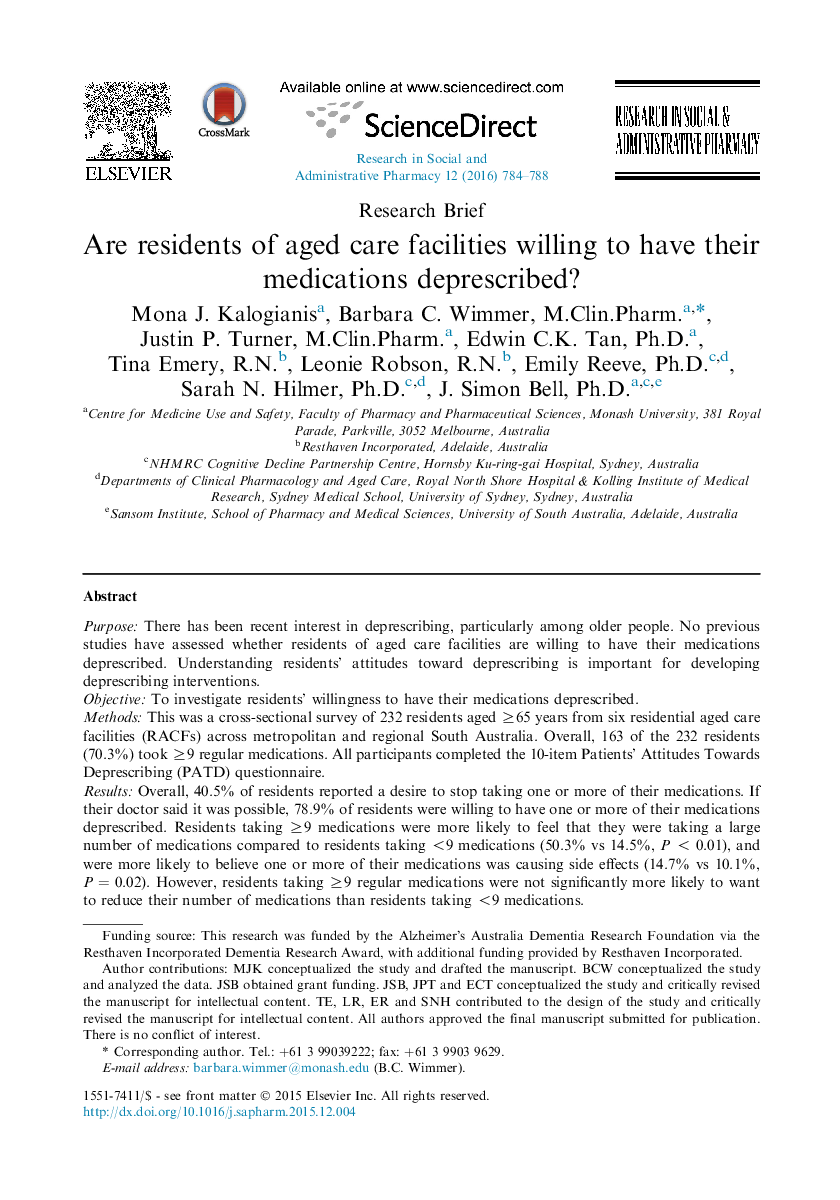| Article ID | Journal | Published Year | Pages | File Type |
|---|---|---|---|---|
| 2508108 | Research in Social and Administrative Pharmacy | 2016 | 5 Pages |
PurposeThere has been recent interest in deprescribing, particularly among older people. No previous studies have assessed whether residents of aged care facilities are willing to have their medications deprescribed. Understanding residents' attitudes toward deprescribing is important for developing deprescribing interventions.ObjectiveTo investigate residents' willingness to have their medications deprescribed.MethodsThis was a cross-sectional survey of 232 residents aged ≥65 years from six residential aged care facilities (RACFs) across metropolitan and regional South Australia. Overall, 163 of the 232 residents (70.3%) took ≥9 regular medications. All participants completed the 10-item Patients' Attitudes Towards Deprescribing (PATD) questionnaire.ResultsOverall, 40.5% of residents reported a desire to stop taking one or more of their medications. If their doctor said it was possible, 78.9% of residents were willing to have one or more of their medications deprescribed. Residents taking ≥9 medications were more likely to feel that they were taking a large number of medications compared to residents taking <9 medications (50.3% vs 14.5%, P < 0.01), and were more likely to believe one or more of their medications was causing side effects (14.7% vs 10.1%, P = 0.02). However, residents taking ≥9 regular medications were not significantly more likely to want to reduce their number of medications than residents taking <9 medications.ConclusionsDeprescribing interventions are likely to be acceptable to residents' of RACFs, with a high willingness to discontinue medicines if doctors say it is possible. This highlights the importance of the proactive involvement of health care professionals in an individualized deprescribing process.
